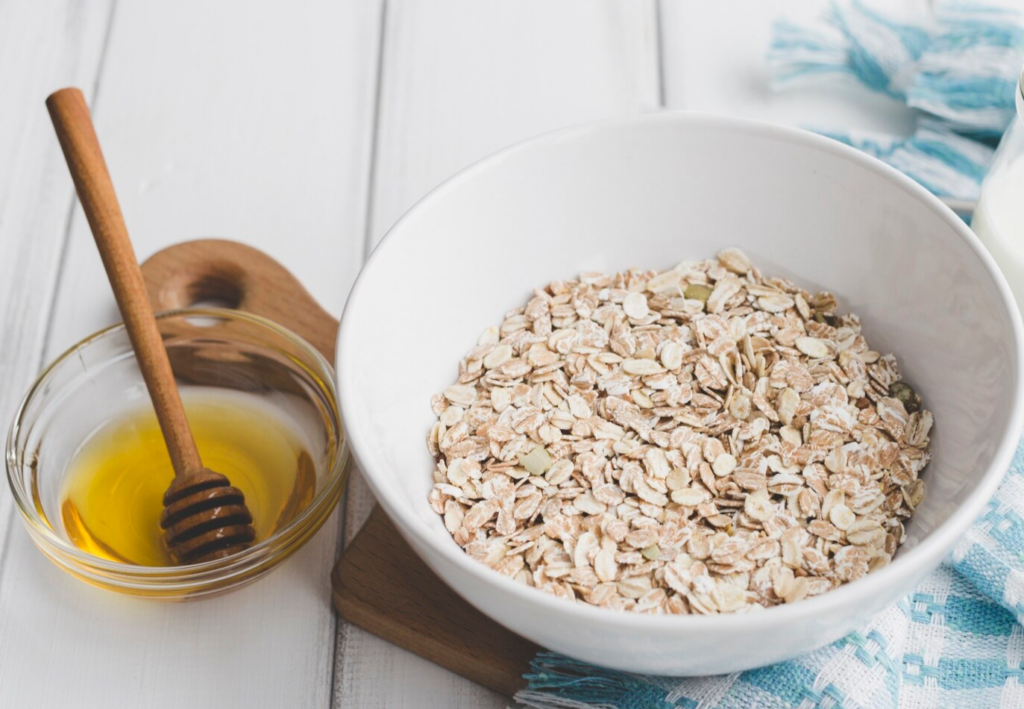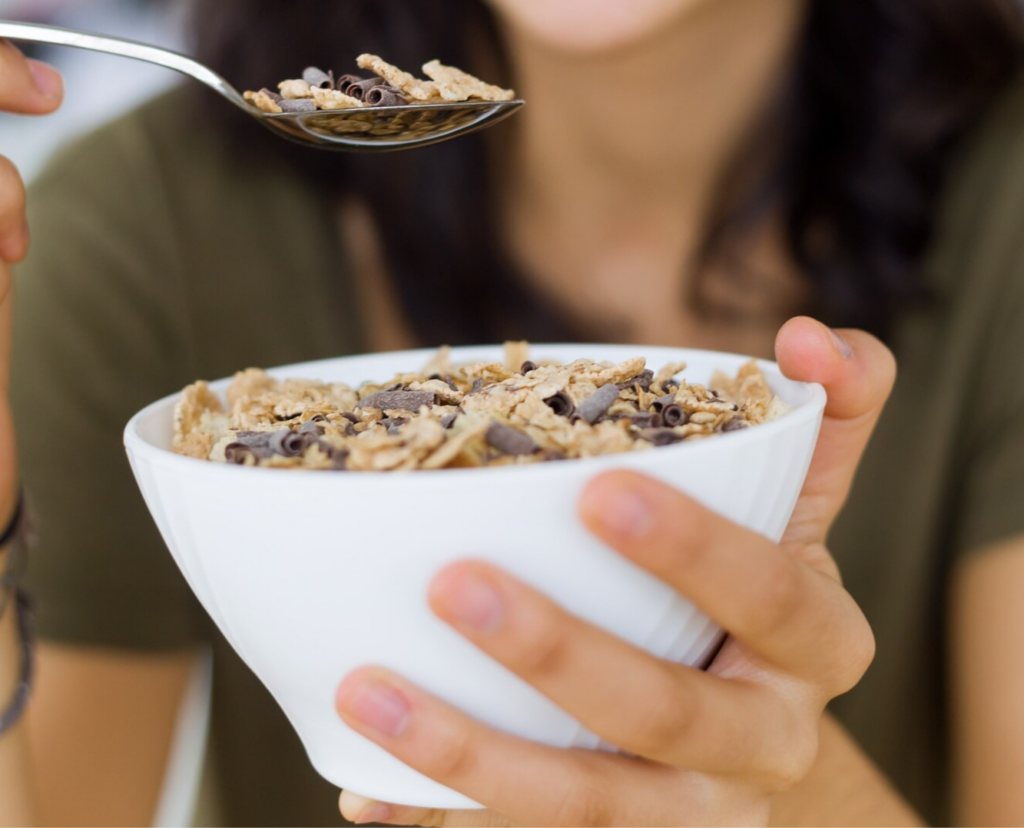Diarrhea is one of the most common gastrointestinal issues that can affect people of all ages. It can be triggered by various factors, including infections, food intolerance, medications, and even stress.

When experiencing diarrhea, it’s essential to adjust your diet to help manage symptoms and promote faster recovery. But what about oatmeal? Is it a suitable food option for individuals suffering from diarrhea?
In this blog post, we’ll dive deep into the question: Is oatmeal good for diarrhea? We’ll explore its nutritional value, how it can help soothe your stomach, and how to incorporate it into your diet during an episode of diarrhea.
By the end of this post, you’ll have a clear understanding of whether oatmeal is a go-to option or something to avoid when dealing with this uncomfortable condition.
Understanding Diarrhea and Its Causes
Before we discuss oatmeal’s potential benefits, let’s first understand what diarrhea is and its causes. Diarrhea refers to loose, watery stools that occur more frequently than usual.
It can last for a few days or become chronic in some cases. There are several common causes of diarrhea, including:
Infections – Bacterial, viral, or parasitic infections can upset the digestive system, leading to diarrhea. Some common examples are food poisoning or gastrointestinal infections caused by E. coli, salmonella, or rotavirus.
Food Sensitivities – Certain foods may trigger diarrhea in sensitive individuals. Lactose intolerance, for example, occurs when the body is unable to digest lactose, leading to diarrhea.
Medications – Some medications, such as antibiotics, can disrupt the gut flora and cause diarrhea as a side effect.
Chronic Conditions – Disorders like irritable bowel syndrome (IBS), celiac disease, and inflammatory bowel disease (IBD) can result in recurring episodes of diarrhea.
Stress and Anxiety – Emotional stress can also play a significant role in gut health, triggering diarrhea or other digestive problems.
Regardless of the cause, diarrhea can be uncomfortable and inconvenient. The main goal during a diarrhea episode is to manage the symptoms, prevent dehydration, and restore normal bowel function. That’s where food choices, like oatmeal, come in.
The Role of Oatmeal in the Diet
Oatmeal is a popular breakfast food made from ground oats. It’s known for its mild flavor, versatility, and impressive nutritional profile.
Oats are rich in fiber, vitamins, and minerals, making them a staple in a balanced diet. Let’s break down oatmeal’s nutritional value to better understand its benefits.
Nutritional Profile of Oatmeal
Oatmeal is an excellent source of several nutrients:
- Fiber: Oats are rich in soluble fiber, particularly beta-glucan, which is known for its ability to absorb water and form a gel-like substance. This type of fiber helps to bulk up stool and slow down bowel movements, which can be beneficial during diarrhea.
- Vitamins and Minerals: Oats are a good source of B-vitamins (including B1, B5, and folate), iron, magnesium, and zinc. These nutrients support overall health, immune function, and digestive health.
- Protein: Oatmeal contains a moderate amount of protein, which can help repair tissues and maintain overall health during illness.
The combination of soluble fiber, vitamins, and minerals makes oatmeal a highly nutritious and gentle food that can support gut health. But how does it specifically help with diarrhea?
How Oatmeal Can Help With Diarrhea
Now, let’s explore why oatmeal may be beneficial during diarrhea:
Soothing Effect on the Stomach
Oatmeal is a bland, easily digestible food that is unlikely to irritate the digestive system. When you’re experiencing diarrhea, your digestive tract is already under stress.
Eating foods that are easy on the stomach can help prevent further irritation and inflammation. The mild, soothing texture of oatmeal can provide comfort, especially if your stomach is feeling sensitive.
High in Soluble Fiber
As mentioned earlier, oatmeal contains soluble fiber, which has a unique ability to absorb water and form a gel-like consistency in the gut. This helps to thicken stool and reduce the frequency of loose, watery bowel movements.
Soluble fiber also slows down the passage of food through the intestines, giving your digestive system more time to absorb nutrients and water, which can be lost during diarrhea.
In fact, soluble fiber is often recommended as part of the treatment for diarrhea, as it can help restore normal bowel function by improving stool consistency. Oats, being high in soluble fiber, are an ideal food choice when trying to manage diarrhea.
Helps Replenish Lost Nutrients
Diarrhea can lead to dehydration and the loss of essential nutrients, including electrolytes like potassium and sodium.
Oatmeal, although not a significant source of electrolytes, can help provide a mild source of minerals such as magnesium and zinc, which support the body’s ability to recover from dehydration and maintain normal bodily functions.
Gentle on the Digestive Tract
Oatmeal is a food that is easy to digest and unlikely to cause further irritation in the digestive system. During an episode of diarrhea, it’s important to choose foods that are gentle on the stomach and intestines.
Oatmeal fits this bill perfectly. Its bland taste and texture won’t agitate your digestive tract, making it a suitable choice when you’re looking for something mild to eat.
Helps Improve Stool Consistency
One of the main goals when dealing with diarrhea is to restore normal stool consistency. The soluble fiber in oatmeal helps to absorb excess water in the intestines and form firmer stool.
This can help slow down the frequent trips to the bathroom and make stools more solid, which is one of the most effective ways to manage diarrhea.
Promotes Gut Health
Oats contain a type of prebiotic fiber that supports the growth of beneficial gut bacteria. A healthy gut microbiome is essential for proper digestion and immune function.
During diarrhea, especially when it’s caused by a gut infection, the balance of bacteria in the intestines can be disrupted.
Oatmeal, with its prebiotic properties, may help support the growth of good bacteria and promote a healthier gut environment, contributing to faster recovery.

How to Incorporate Oatmeal into Your Diet During Diarrhea
While oatmeal can be beneficial during diarrhea, it’s essential to prepare and consume it properly. Here are some tips on how to incorporate oatmeal into your diet when experiencing diarrhea:
Go for Plain Oatmeal
When preparing oatmeal for diarrhea, it’s best to stick to plain oats without added sugar, fruits, or heavy spices. Sweeteners, artificial additives, or certain fruits like berries may irritate your digestive system further.
Cook It Well
Make sure the oatmeal is cooked well, as overcooked oats are easier to digest. You want the oats to be soft and smooth, which can help reduce the strain on your digestive system.
Avoid adding too much liquid, though—if the oatmeal becomes too watery, it might not be as effective in thickening stool.
Eat Small, Frequent Portions
If you’re suffering from diarrhea, you may have a reduced appetite or find it difficult to eat large meals. Instead of forcing yourself to eat a large bowl of oatmeal, try eating small portions throughout the day.
Pair Oatmeal with Other Gentle Foods
If you find plain oatmeal too bland, you can pair it with other easily digestible foods that are known to help with diarrhea, such as bananas, boiled potatoes, or cooked carrots. These foods provide additional nutrients without irritating the gut.
Stay Hydrated
Remember, diarrhea can lead to dehydration, so it’s essential to drink plenty of fluids alongside your meals. Opt for clear broths, electrolyte solutions, or water to help replenish lost fluids.
Other Foods That May Help With Diarrhea
In addition to oatmeal, several other foods may help manage diarrhea, including:
- Bananas: Rich in potassium and easily digestible, bananas are a go-to food for diarrhea. They help restore electrolytes and improve stool consistency.
- Plain Rice: Like oatmeal, white rice is bland and gentle on the stomach, making it an excellent choice for those suffering from diarrhea.
- Applesauce: Applesauce provides soluble fiber and is gentle on the digestive system, making it another good option.
- Boiled Potatoes: Potatoes, when cooked without the skin, are a bland food that can help thicken stool.
Foods to Avoid During Diarrhea
While some foods can help with diarrhea, others may make the condition worse. Here’s a list of foods to avoid:
- Fatty or Fried Foods: These can irritate the stomach and intestines, worsening diarrhea.
- Dairy Products: If you’re lactose intolerant, dairy products can trigger diarrhea. Even if you’re not, they may still cause irritation.
- Spicy Foods: Spices can stimulate the digestive system and exacerbate diarrhea.
- Caffeinated Beverages: Caffeine can act as a diuretic and worsen dehydration, making diarrhea worse.
Conclusion
Oatmeal is a gentle, easily digestible food that can be a helpful option when managing diarrhea. Its high soluble fiber content, soothing texture, and ability to improve stool consistency make it a suitable food choice for individuals suffering from this uncomfortable condition.
However, it’s important to eat plain, well-cooked oatmeal in small portions and avoid adding any irritating ingredients like sugar or fruit.
By incorporating oatmeal into your diet alongside other bland, gentle foods, you can help restore normal bowel function, prevent dehydration, and support your body’s recovery.
Always listen to your body, and if diarrhea persists or becomes chronic, be sure to consult with a healthcare professional to rule out any underlying medical conditions.